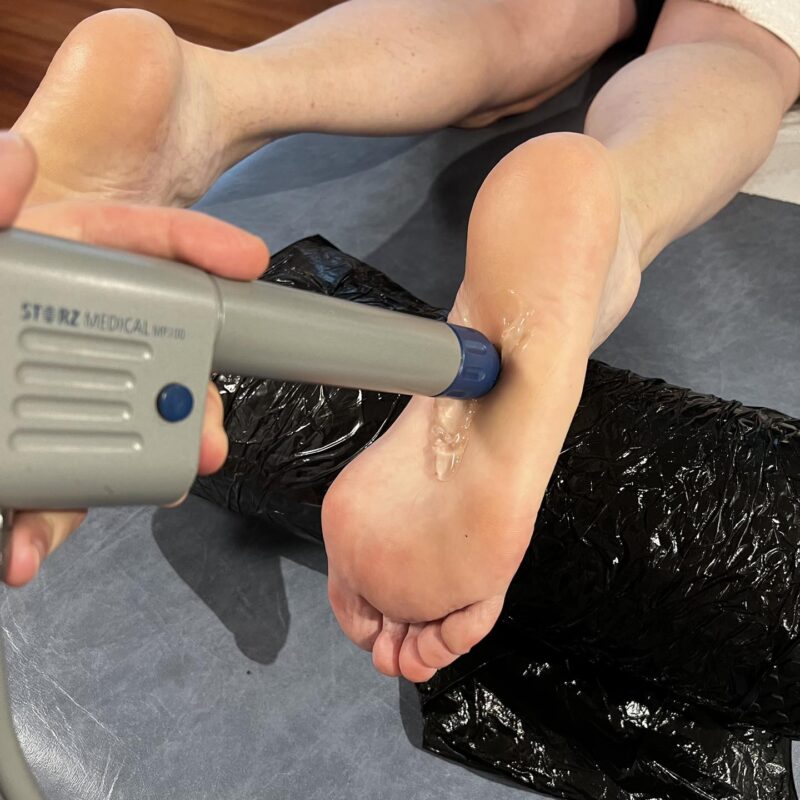Serving the UK and surrounding areas for over 19 years.
MCR Therapies offers expert insights into the benefits of acupuncture for respiratory health, integrating traditional and modern practices.
Explore the Benefits of Acupuncture for Respiratory Health in the UK
Uncovering the Historical Journey of Acupuncture in the UK

Acupuncture for Respiratory Health: Acupuncture boasts a rich and fascinating history in the UK, emerging as a respected form of complementary therapy in the late 20th century. Initially introduced by a select group of dedicated practitioners, this ancient practice has evolved into a widely accepted approach for addressing various health concerns, particularly respiratory conditions. Rooted in the principles of traditional Chinese medicine, acupuncture focuses on achieving balance within the body’s energy, known as ‘Qi’, to foster healing. Over time, practitioners have adapted these age-old techniques to better align with contemporary Western medical practices, ensuring they resonate effectively with patients in the UK. The growing popularity of acupuncture can be attributed to its non-invasive nature and an expanding body of evidence that supports its efficacy, particularly in managing chronic health issues such as asthma and chronic obstructive pulmonary disease (COPD).
An increasing interest in holistic health approaches also characterises the progression of acupuncture in the UK. This shift towards integrative medicine reflects a wider trend where patients actively seek alternatives to traditional treatments, especially in light of the significant side effects often associated with prolonged medication use. Today, acupuncture is not only recognised as an alternative therapy but also as a vital complement to conventional medical practices, further solidifying its place in the diverse array of healthcare options available to UK citizens.
Understanding the Role of Regulatory Bodies in Acupuncture Practice in the UK
The practice of acupuncture in the UK is governed by several key regulatory bodies that ensure practitioners maintain high standards of professionalism and safety. The British Acupuncture Council (BAcC) stands as the principal organisation, providing comprehensive guidelines and a robust framework for practitioners to adhere to. This regulatory oversight is vital for maintaining public trust and ensuring patients receive safe and effective treatment. Other significant organisations include the Acupuncture Association of Chartered Physiotherapists (AACP), the British Medical Acupuncture Society (BMAS), the Complementary and Natural Healthcare Council (CNHC), and the Association of Traditional Chinese Medicine and Acupuncture UK (ATCM).
- The Acupuncture Association of Chartered Physiotherapists (AACP)
- The British Medical Acupuncture Society (BMAS)
- The Complementary and Natural Healthcare Council (CNHC)
- The Association of Traditional Chinese Medicine and Acupuncture UK (ATCM)
These regulatory bodies not only provide necessary accreditation to practitioners but also offer ongoing professional development opportunities, ensuring that acupuncturists remain well-informed about best practices and the latest research in the field. Consequently, patients can have confidence that their acupuncturist possesses the requisite skills and knowledge to deliver safe and effective care tailored to their needs.
How Can You Find a Qualified Acupuncturist in the UK?
Finding a qualified acupuncturist is crucial for receiving effective treatment that meets your specific health needs. Several factors must be considered to ensure that the practitioner adheres to professional standards. When searching for an acupuncturist, prospective patients should verify the following qualifications:
- Registration with a recognised regulatory body.
- Completion of a recognised acupuncture training programme.
- Experience in treating specific respiratory conditions.
- Positive patient reviews and testimonials.
In addition to these essential qualifications, it is advisable to arrange an initial consultation to discuss treatment options and address any questions or concerns you may have. This meeting allows patients to assess the acupuncturist’s communication style and overall approach to care. Being informed and proactive during this process can significantly enhance the patient’s experience and outcomes in acupuncture treatment, making it a more beneficial journey towards improved respiratory health.
Expert Insights into Acupuncture’s Role in Respiratory Health
What Conditions Can Acupuncture Effectively Treat?
Acupuncture is effective in addressing various respiratory conditions. Among the most frequently treated issues are asthma, bronchitis, and chronic obstructive pulmonary disease (COPD). For example, practitioners in London have successfully incorporated acupuncture into comprehensive treatment plans for asthma patients, leading to improved lung function and a reduced frequency of asthma attacks. Similarly, patients suffering from bronchitis have reported considerable relief from symptoms such as persistent coughing and chest tightness after undergoing acupuncture sessions.
Real-world examples illustrate the pivotal role acupuncture can play in promoting respiratory health. In Manchester, a recent study involving patients with COPD revealed that those receiving regular acupuncture treatments experienced fewer exacerbations and a decreased reliance on conventional medication. This is especially important when considering the potential side effects associated with long-term medication use. Therefore, acupuncture not only addresses immediate symptoms but also contributes to a long-term management strategy for respiratory illnesses, making it an invaluable resource for patients across the UK.
How Does Acupuncture Enhance Respiratory Health?
Acupuncture enhances respiratory health by stimulating the body’s natural healing mechanisms. This practice involves the insertion of fine needles at specific points along the body’s meridians, which correspond to various organs and systems, including the lungs. Such stimulation can improve blood circulation, reduce inflammation, and promote relaxation of the airway muscles, ultimately leading to enhanced lung function and respiratory capacity.
Patients seeking to maximise the benefits of acupuncture should consider several actionable steps. First, it is advisable to undergo a thorough assessment of their respiratory health with a qualified healthcare provider. This assessment can help determine the specific acupuncture points that may be most effective for their individual condition. Furthermore, integrating acupuncture into a broader wellness routine that includes regular exercise and a balanced diet can amplify its positive effects. Lastly, maintaining an open dialogue with the acupuncturist about any changes in symptoms or side effects experienced during treatment allows for necessary adjustments to the acupuncture plan, ensuring continued efficacy and optimal results.
Success Stories from Acupuncture Patients in the UK

Success stories from patients throughout the UK highlight the transformative impact of acupuncture on respiratory health. One noteworthy case involved a patient in Edinburgh who had severe asthma, leading to frequent hospital visits. After several weeks of acupuncture treatment, this patient reported a significant reduction in symptoms, resulting in a marked improvement in their quality of life. Such cases exemplify how acupuncture can help reduce reliance on medication while also enhancing overall lung function.
Expert analyses of these testimonials often reveal common themes, particularly the importance of consistency in treatment and the development of personalised care plans. Practitioners emphasise that a collaborative relationship between the acupuncturist and the patient can greatly influence treatment outcomes. By actively participating in their care, patients not only feel empowered but are also more likely to adhere to the treatment plan, ultimately leading to improved respiratory health and overall well-being.
What Are the Key Benefits of Acupuncture for Respiratory Health?
Significant Reduction in Respiratory Symptoms
Acupuncture is widely recognised for its ability to alleviate respiratory symptoms significantly. Patients report noticeable alleviation of shortness of breath, persistent coughing, and wheezing following acupuncture sessions. These improvements play a crucial role in enhancing the overall quality of life, enabling individuals to engage in daily activities with greater ease and comfort.
By specifically targeting acupuncture points associated with respiratory function, practitioners can help relax the airway muscles, reduce inflammation, and improve overall lung capacity. For instance, patients experiencing allergic reactions frequently find relief from nasal congestion and bronchial irritation through acupuncture. Over the course of several sessions, many patients discover that they can breathe more freely, which directly contributes to a better quality of life and improved psychological well-being.
Improvement in Lung Function
Research has consistently shown that acupuncture can improve lung function, making it a valuable tool in managing respiratory health. Studies have shown measurable increases in lung capacity and functionality among patients undergoing regular acupuncture treatments. This is particularly beneficial for individuals with chronic lung conditions, as it can lead to a decrease in the severity and frequency of symptoms and exacerbations.
Patients interested in improving their lung function through acupuncture can expect to experience gradual but noticeable enhancements in their breathing capabilities. Regular sessions stimulate the body’s natural healing processes, thereby reducing inflammation and promoting better oxygen exchange in the lungs. Such improvements can be especially vital for those with conditions like COPD, where lung function is frequently compromised, ultimately leading to a better quality of life.
Minimising Medication Side Effects
One significant advantage of acupuncture for respiratory health is its potential to reduce reliance on conventional medications. Numerous patients experience side effects from long-term medication use, including drowsiness, nausea, and other adverse reactions. By incorporating acupuncture into their treatment regimen, patients can often achieve symptom relief without the necessity for increased medication dosages.
This reduction in medication usage not only enhances the patient’s quality of life but also alleviates the burden of side effects typically associated with pharmacological treatments. In certain cases, this approach can lead to a more holistic method of managing respiratory conditions, allowing patients to improve their health without the complications that frequently accompany traditional medications.
Boosting the Immune System
Acupuncture has been shown to enhance the immune system, thus contributing to better overall respiratory wellness. By promoting lymphatic drainage and improving circulation, acupuncture helps the body eliminate toxins and strengthen its natural defences against respiratory infections. This can be particularly advantageous during the winter months, when respiratory illnesses such as colds and flu are more prevalent.
Patients who incorporate acupuncture into their health regimen may notice a marked decrease in the frequency of respiratory infections. This enhanced immune response not only aids in preventing illness but also supports quicker recovery when infections do arise. Consequently, patients can enjoy greater well-being and reduced disruptions to their daily lives, thereby significantly enhancing their overall quality of life.
How to Effectively Integrate Acupuncture into Your Respiratory Health Plan
Engaging in Consultation with Healthcare Providers
Before commencing acupuncture treatment, it is essential to consult with your GP or a respiratory specialist. This crucial step ensures that acupuncture will complement your existing treatment plan without any adverse interactions. Open communication with your healthcare provider facilitates a holistic approach to managing your respiratory health, integrating both conventional and complementary therapies.
During this consultation, you can discuss your respiratory health history, current medications, and any prior experiences with acupuncture. This open dialogue allows your healthcare provider to assess the suitability of acupuncture for your specific condition and recommend a qualified practitioner. Additionally, sharing your intentions and goals for acupuncture can lead to a more customised treatment plan tailored to your individual needs and preferences.
Determining the Frequency and Duration of Acupuncture Sessions
The effectiveness of acupuncture often hinges on the frequency and duration of treatment sessions. While the precise number of treatments can vary based on individual conditions, many practitioners recommend an initial series of weekly sessions, gradually tapering as improvements are observed. This structured approach enables an effective response to treatment, maximising the benefits derived from acupuncture.
Patients should be prepared to commit to a treatment plan over several weeks to achieve optimal results. Regular sessions not only reinforce therapeutic effects but also provide opportunities for ongoing assessment and adjustments to the treatment plan based on the patient’s evolving needs. Consistency is critical, as it facilitates continuous monitoring of respiratory health and enables necessary modifications to the treatment strategy as needed.
Combining Acupuncture with Other Therapeutic Approaches
Acupuncture can be effectively integrated with other therapies, such as physiotherapy or medications, to create a comprehensive strategy for respiratory health. This integrative model allows patients to benefit from the strengths of various treatment modalities, enhancing overall outcomes. For instance, patients with asthma may discover that acupuncture complements their inhaler usage, providing additional relief from symptoms and reducing the need for higher medication dosages.
Best practices for integrating acupuncture with other therapies involve fostering open communication among all healthcare providers engaged in the patient’s care. This collaboration ensures that each professional understands the treatment plan and can contribute to a cohesive strategy for managing the patient’s health. Patients should also maintain an open dialogue with their acupuncturist regarding any other treatments they are receiving, empowering their acupuncturist to tailor the sessions to their unique situation and health goals.
Monitoring Progress and Adjusting Treatment Plans
Regularly monitoring the impact of acupuncture on your respiratory health is essential for optimising benefits and effectively managing symptoms. Patients should maintain an ongoing dialogue with their acupuncturist, discussing any changes in symptoms, lifestyle, or overall health status. This proactive approach enables timely adjustments to the treatment plan, ensuring that patients continue to receive the most effective care tailored to their specific needs.
Setting specific goals for treatment can significantly enhance the effectiveness of the monitoring process. For example, patients might aim to reduce their reliance on medications, improve their exercise tolerance, or decrease the frequency of respiratory infections. Regular check-ins with both the acupuncturist and other healthcare providers can help assess progress towards these goals and facilitate necessary adjustments to the treatment strategy. This collaborative approach fosters a sense of empowerment and ownership over one’s health journey.
Research-Supported Benefits of Acupuncture for Respiratory Health
Clinical Evidence from Studies Conducted in the UK
Clinical studies carried out in the UK have provided substantial evidence supporting the benefits of acupuncture for respiratory health. In a recent study involving patients with chronic asthma in London, participants who received regular acupuncture treatments reported significant improvements in lung function and a notable reduction in the use of rescue inhalers. These findings underscore the potential of acupuncture as a valuable adjunctive treatment for managing asthma, highlighting its role in improving patients’ quality of life.
Another noteworthy study evaluated the effects of acupuncture on patients with COPD in Birmingham. Researchers observed that participants experienced fewer exacerbations and improved overall respiratory function following a series of acupuncture sessions. Such studies contribute to the growing body of evidence supporting the effectiveness of acupuncture, encouraging both practitioners and patients to consider this therapy as part of comprehensive respiratory health management.
What Insights Do Experts Offer Regarding Acupuncture?
Leading experts in the field of acupuncture and respiratory health advocate for its use based on extensive research and clinical observations. Many practitioners stress that acupuncture’s holistic approach aligns well with traditional Western medical practices, providing a complementary pathway for managing chronic respiratory conditions. Experts frequently highlight the positive physiological effects of acupuncture, including its ability to reduce inflammation and enhance blood circulation, both of which are paramount for optimal lung health.
Expert analysis also emphasises the importance of individualised treatment plans. Customising acupuncture to address the specific needs of each patient enhances its efficacy and fosters a collaborative spirit between the practitioner and patient. By incorporating insights from both acupuncture and conventional medicine, experts advocate for a more integrated approach to managing respiratory health, ultimately leading to improved patient outcomes and satisfaction.
Long-Term Impact of Acupuncture on Respiratory Health
Research suggests that acupuncture can provide lasting benefits for respiratory health, particularly in reducing the frequency of exacerbations in chronic conditions. Studies have shown that patients who engage in regular acupuncture treatment may experience sustained improvements in respiratory function even after their sessions have concluded. This long-term effect is attributed to the cumulative impact of acupuncture on the body’s healing processes and immune response.
Patients frequently report experiencing fewer flare-ups and a diminished reliance on medications after completing a course of acupuncture treatment. This not only alleviates the symptoms associated with their conditions but also enhances overall well-being and quality of life. As such, acupuncture serves as a valuable long-term strategy for managing respiratory illnesses, making it an attractive option for patients seeking sustainable solutions to their health challenges.
Acupuncture’s Efficacy in Addressing Specific Respiratory Conditions
Numerous studies have highlighted acupuncture’s effectiveness in treating specific respiratory conditions, including asthma and COPD. For instance, research has demonstrated that individuals with asthma who undergo acupuncture treatment experience significant improvements in lung function, reduced airway hyperreactivity, and better symptom management. Similarly, studies involving COPD patients have indicated that acupuncture can lead to reduced dyspnoea, improved exercise capacity, and a decreased need for rescue medications.
The consistent findings across various studies underscore acupuncture’s role as a complementary therapy in the management of respiratory health. By effectively targeting the underlying issues associated with these conditions, acupuncture provides patients with a holistic approach to treatment that enhances their overall quality of life. With continued research and clinical validation, acupuncture’s recognition as an integral component of respiratory health care is likely to expand further.
Understanding the Cost and Accessibility of Acupuncture in the UK
Typical Costs Associated with Acupuncture Sessions
The cost of acupuncture sessions in the UK can vary significantly, influenced by several factors, including location, practitioner experience, and treatment duration. On average, a single session costs between £40 and £80. In metropolitan areas like London, prices tend to be on the higher end of this spectrum, while smaller towns often offer more affordable options that cater to a broader audience.
Patients should consider the potential long-term benefits of acupuncture when evaluating costs. Although the initial expense may seem daunting, many patients find that regular sessions lead to decreased reliance on medications and overall improved health, which can help offset the investment in acupuncture treatments. It is essential to discuss pricing and available payment options with your practitioner before starting treatment to ensure they align with your budget and healthcare requirements.
NHS and Private Acupuncture Options
Acupuncture may be accessible through the NHS or privately, with notable differences in coverage and service quality. While the NHS is beginning to acknowledge the benefits of acupuncture, its availability can be limited and often depends on the patient’s specific healthcare needs and regional policies. In certain instances, patients may receive referrals for acupuncture services aimed at managing pain or addressing specific chronic conditions, including respiratory issues.
Conversely, private acupuncture practices typically offer greater flexibility in terms of appointment availability and treatment options. Patients opting for private treatment can select practitioners based on their qualifications and specialisations, ensuring they receive tailored care for their respiratory health. Understanding the distinctions between NHS and private options enables patients to make informed decisions regarding their treatment pathways and access to acupuncture services that best suit their needs.
Accessibility of Acupuncture Services Across Different Regions
Access to acupuncture services can vary significantly across different regions in the UK. Urban centres generally provide a higher concentration of qualified practitioners, making it easier for patients to find suitable services. However, in rural areas, options may be more limited, often necessitating travel to larger towns or cities for treatment.
To locate acupuncture services in your vicinity, consider searching online directories, consulting local healthcare providers, or seeking recommendations from friends or family members. Many practitioners now offer virtual consultations, which can also enhance accessibility for those residing in remote areas. By actively seeking resources and support, patients can navigate the landscape of acupuncture services available to them more effectively in their region.
Frequently Asked Questions about Acupuncture
What is acupuncture?
Acupuncture is a traditional Chinese medicine practice that involves inserting fine needles into specific points on the body to stimulate healing and improve health outcomes. This holistic approach aims to restore balance and promote overall well-being.
How does acupuncture assist with respiratory health?
Acupuncture helps enhance respiratory health by reducing inflammation, improving lung function, and alleviating symptoms such as coughing and shortness of breath. This can significantly contribute to a patient’s overall quality of life and wellness.
Is acupuncture considered safe?
When performed by a qualified practitioner, acupuncture is generally regarded as safe. It is essential to select a registered acupuncturist to ensure the highest standards of care and treatment.
How many acupuncture sessions are typically required for respiratory issues?
The number of sessions required varies by individual; however, most patients benefit from an initial series of weekly sessions, with gradual tapering as improvements are noted. This structured approach ensures effective management of respiratory conditions.
Can acupuncture replace conventional medications?
While acupuncture can effectively manage symptoms, it should be perceived as a complementary therapy rather than a complete substitute for conventional medications, especially in cases of severe respiratory conditions.
Are there any potential side effects associated with acupuncture?
Side effects of acupuncture are generally minimal but may include temporary soreness, bruising, or mild fatigue. These effects typically resolve quickly after treatment, making acupuncture a well-tolerated option for many patients.
How do I find a qualified acupuncturist for my needs?
To find a qualified acupuncturist, check for registration with recognised regulatory bodies, review their qualifications, and seek recommendations from healthcare providers or trusted sources to ensure you receive safe and effective treatment.
Can acupuncture be safely combined with other treatments?
Yes, acupuncture can be safely integrated with other treatments, including physiotherapy and medications. It is essential to inform all healthcare providers about ongoing therapies to ensure a coordinated approach to your healthcare.
What are the long-term benefits of acupuncture for respiratory health?
Long-term benefits of acupuncture for respiratory health can include reduced symptom frequency, improved lung function, and decreased dependence on medications, making it a valuable component of a comprehensive health management strategy.
Is acupuncture available through the NHS?
While acupuncture is available through the NHS, access may be limited based on regional policies and specific health needs. Private options tend to be more widely accessible, offering greater flexibility for patients.


























1 Comment
It’s fascinating to see how acupuncture has gained recognition in the UK over the years, especially concerning respiratory health. I’ve always been intrigued by the concept of ‘Qi’ and how balancing it can influence our well-being. In my experience, integrating acupuncture with modern therapies has provided a more holistic approach to health, especially when dealing with conditions like asthma or allergies.